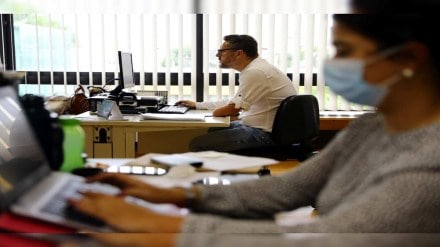In recent years, a noticeable shift has occurred in the way employees approach resignations. Historically, employees were cautious about leaving their jobs without having another offer lined up. However, today, many professionals are resigning without a backup plan, choosing to prioritise personal well-being and career growth over job security. Nikita Farswan, a Senior Human Resources Executive, sheds light on why this change is happening and how it affects companies and employees alike.
Changing Workplace Expectations
According to Farswan, employees today are placing more value on work-life balance, mental well-being, and job satisfaction than ever before. In the past, a stable job and job security were the primary drivers for professionals. However, many are now questioning whether the trade-off for a job that compromises their well-being is worth it. For these employees, the demands of a stressful or unsatisfying job environment no longer justify staying in a position for the sake of stability.
Confidence in the Job Market
One significant reason behind this trend is the increased confidence many employees have in the job market. With the rise of freelancing, remote work, and skill-based hiring, many individuals feel they can find new opportunities quickly. This growing confidence is a result of the evolving employment landscape, which has opened new career paths and made it easier to transition between roles. The gig economy and the flexibility of remote work have empowered employees to leave without fearing long-term unemployment, opines Farswan.
Gen Z and Millennials Lead the Change
A key driving force behind this change is the shift in mindset among younger generations, particularly Gen Z and Millennials. These employees prioritize growth opportunities, flexibility, and career advancement over long-term stability in a single company. For them, work is no longer just about a steady paycheck—it’s about passion, purpose, and fulfilment. The desire for continuous learning and evolving careers outweighs the traditional notion of staying with one employer for the long haul.
Post-Pandemic Mindset
The global pandemic altered perspectives on work and life in ways that are still reverberating today. During the pandemic, many individuals had the chance to re-evaluate their careers, values, and priorities. People are now seeking roles that offer a sense of fulfilment, flexibility, and alignment with their personal goals. For some, this means taking a career break or exploring different paths altogether, even if it means resigning without another job offer. The post-pandemic mindset has emphasized the importance of life satisfaction over job security.
Toxic Work Environments Push Employees to Leave
Another significant factor driving this trend is the impact of toxic work environments. Employees who feel undervalued, overworked, or unheard are more likely to walk away from a job rather than continue in an environment that negatively affects their mental health. If an employee feels that their contributions are not appreciated, they may choose to resign rather than endure an unhappy work life. This is especially true if they believe there are better opportunities elsewhere that align with their values and aspirations.
Wake-Up Call for Employers
From an HR perspective, the growing number of employees resigning without securing a new job first is a wake-up call. Companies must understand that employee engagement, career growth, and positive work culture are essential for retention. Employers need to prioritize employee well-being and ensure that their employees feel valued, heard, and supported. By offering opportunities for growth, promoting a healthy work-life balance, and addressing toxic workplace behaviours, companies can improve retention and foster a more loyal workforce.
Shift in Employee Priorities
Nikita Farswan’s LinkedIn post highlights the fundamental shift taking place in today’s workforce. Employees are reevaluating their priorities and are no longer willing to sacrifice personal happiness for job security. As the job market continues to evolve, companies must adapt to these changing expectations to retain top talent. By focusing on creating a supportive and engaging work environment, businesses can navigate this shift and ensure long-term success.
Have you noticed this change in your workplace? What steps do you think companies should take to keep their employees satisfied and engaged? Let’s discuss in the comments!
